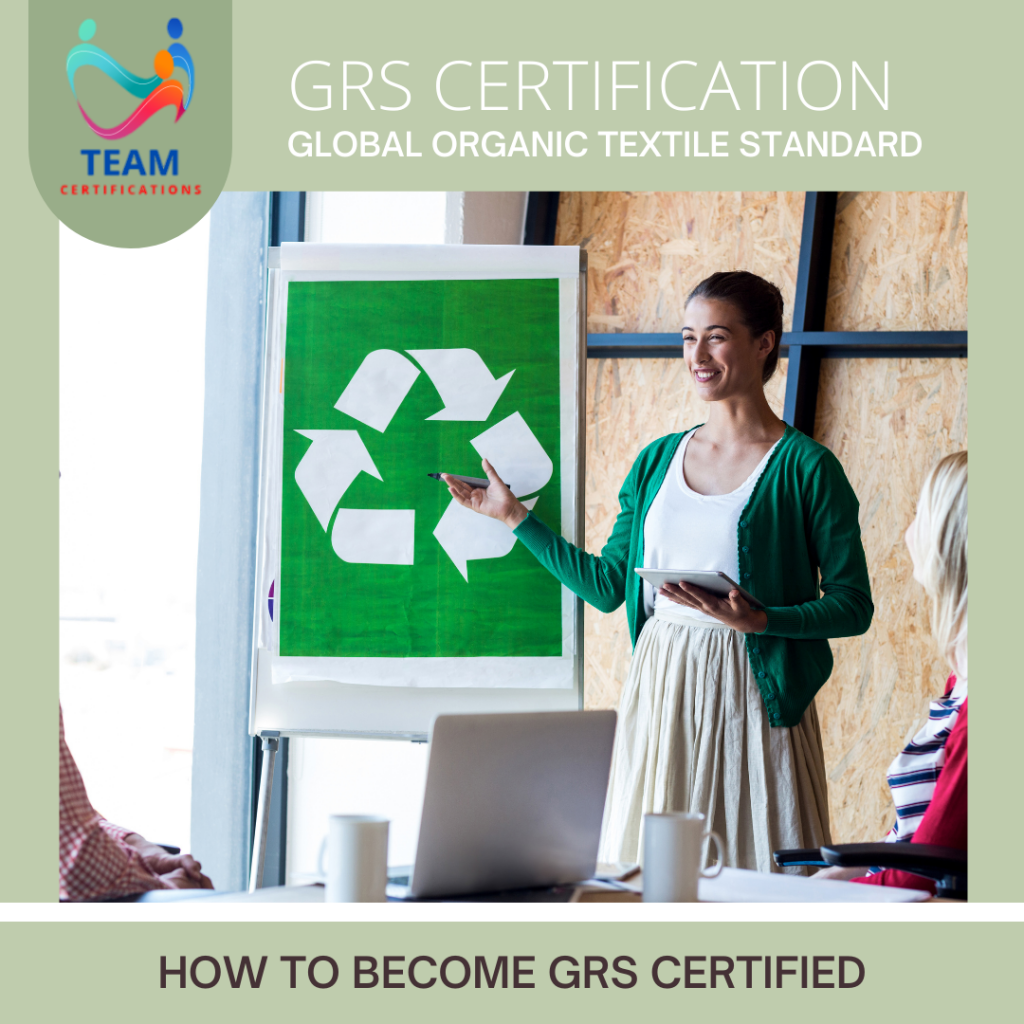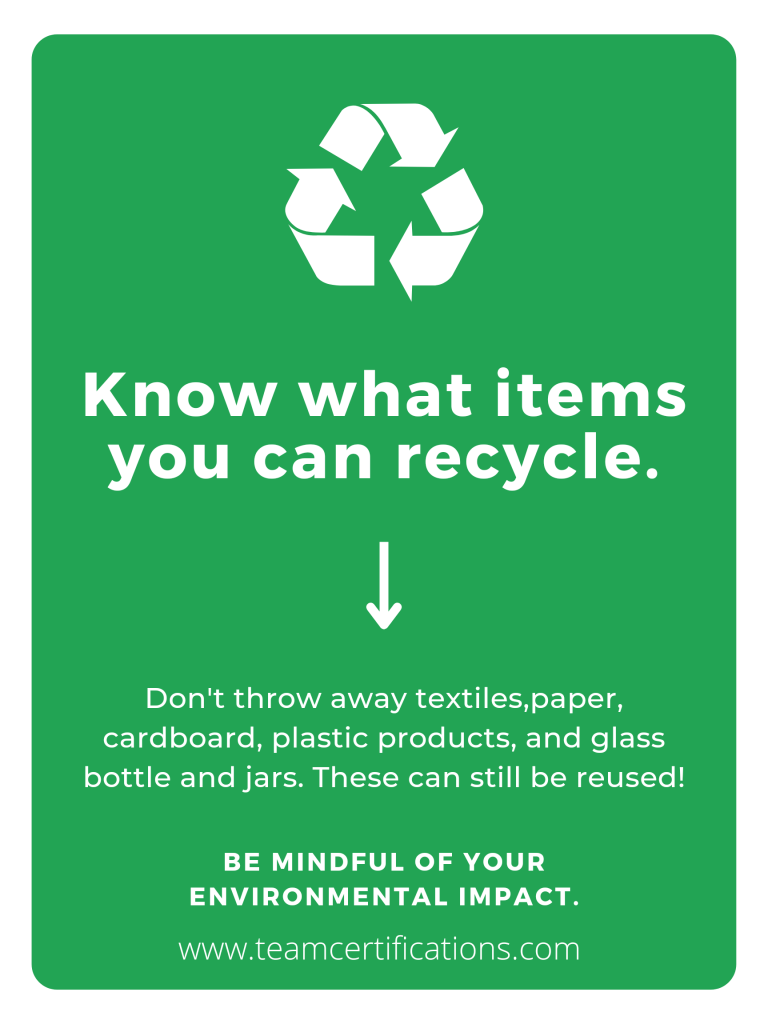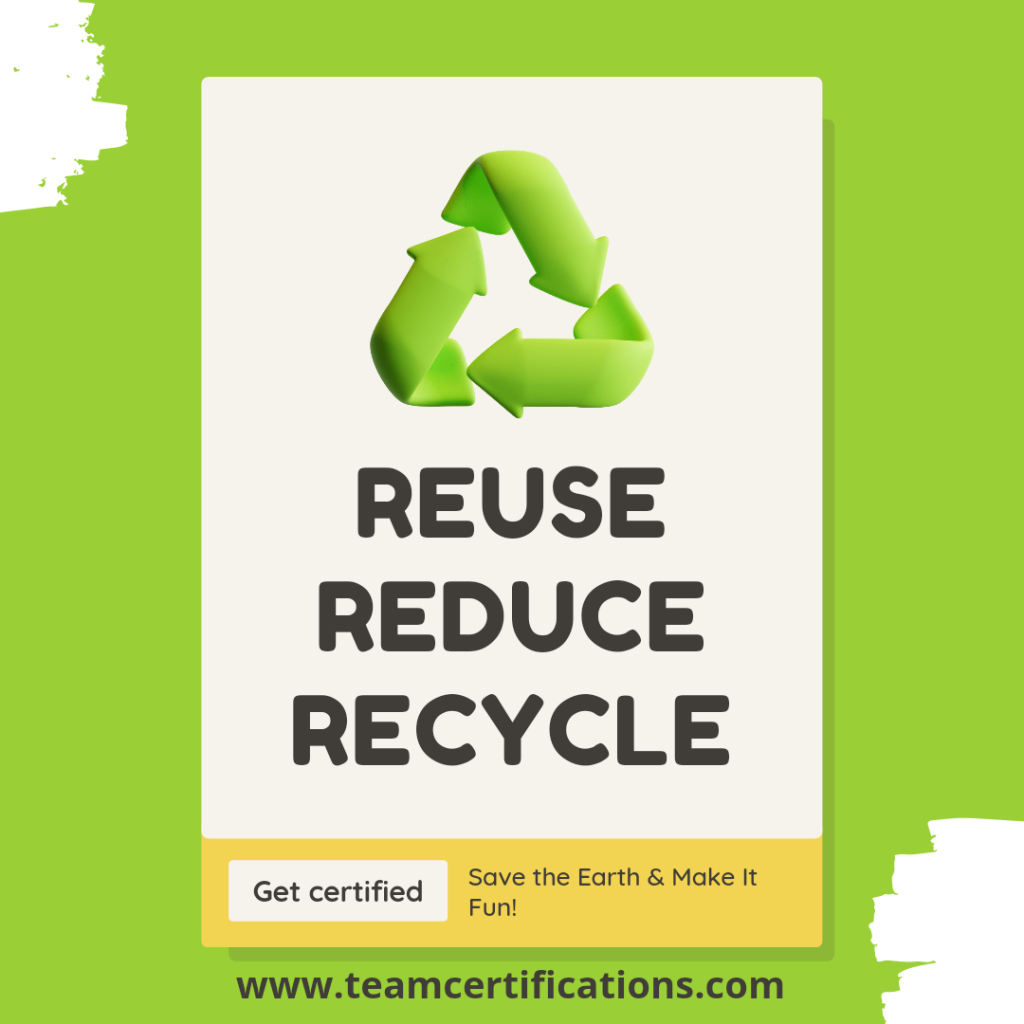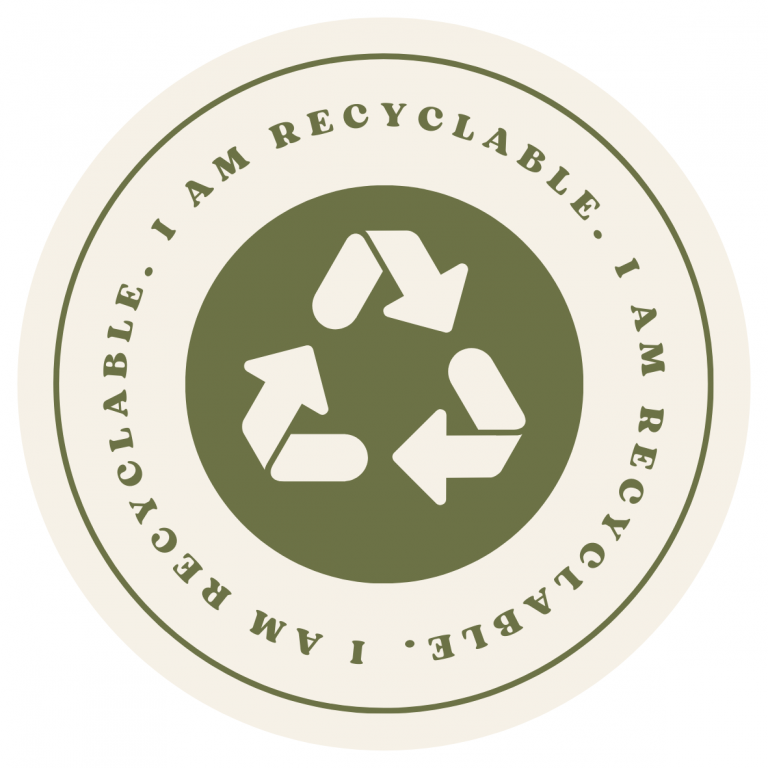What is Global Recycling Standard (GRS) and How to Become GRS Certified
The Global Recycled Standard (GRS) is a certification for products made with recycled materials. It sets requirements for the content of recycled materials, chain of custody, social and environmental practices, and chemical restrictions. GRS is managed by the Textile Exchange, a global nonprofit organization.
To become GRS certified, a company must first implement a system to track recycled input materials through the production process. This includes documenting the flow of materials from input to final product, ensuring that the recycled content meets GRS requirements. The company also needs to comply with social and environmental criteria, such as minimizing environmental impact and ensuring fair labor practices. Once these requirements are met, an independent third-party certification body can audit the company’s processes to verify compliance and issue the GRS certification.

Grs Certification can be applied to both finished and intermediate products including yarns, fabrics, clothes & home textiles. Although Grs Standard was developed for the textile industry, it can also be applied to products from other sectors (metal, paper, and plastic).
The most common intermediate textile products that are covered under Grs Certification include:
⦁ Recycled Fabrics – Cotton, Polyester, Nylon, etc.
⦁ Recycled PET chips
⦁ Recycled Filament
⦁ Recycled Yarns
⦁ Clothing made with recycled materials
⦁ Clothing containing recycled filling materials
⦁ Home textile products such as bedspreads, draperies, drapery liners, and curtains, blankets
⦁ Home textile products containing filling materials, such as quilts, comforters, and sleeping bags

Management System Requirements for Grs Certification
⦁ Social responsibilities
⦁ Quality Assurance System
⦁ Ecological Environment Conditions
⦁ Safe Working Conditions
⦁ International Labour Organization criteria
⦁ Toxicological criteria
GRS Documentation Requirements
⦁ As per the processing stages performed for Grs certified products, the policy should include procedures such as, monitor and minimize waste and discharges as per Grs standard.
⦁ Prepare a plan for continual improvement in Grs production.
⦁ Wet processing units must keep full records of the use of chemicals, energy, water consumption and wastewater treatment, including the disposal of sludge.
The On-Site Inspection for the GRS Certification Includes
⦁ Trace the organic fiber product flow
⦁ All the inputs and accessories utilizes in the process
⦁ Verification of the water treatment system
⦁ Monitor and analyze social criteria
⦁ Implement risk assessment based
residue policy
What is Recycled?
Recycled materials are waste materials that are reclaimed and then reprocessed into something new, instead of disposed of in landfills.
Reclaimed materials can come from:
a. Post-Consumer Materials: Materials generated by households or by commercial, industrial, and institutional facilities in their role as end-users of the product, that can no longer be used for its intended purpose
b. Pre-Consumer or Post Industrial Materials: Materials diverted from the waste stream during the manufacturing process.

Recycled Content:
Grs Certified Products are verified to contain at least 20% of recycled material. Both pre-consumer and post-consumer material are accepted.
Chain Of Custody & GRS Transaction Certificate:
Just because the raw material supplier that you contact has the scope certificate does not mean that the products you will receive are necessarily GRS certified.
A scope certificate merely indicates that the site is able to produce products according to the GRS standard.
Suppliers buy and sell to multiple people in the Grs supply chain, and they are allowed to trade non-GRS certified products.
In order to verify that the product you received from the supplier is GRS certified, you also need to request for the Transaction Certificate (TC) from the apparel supplier. TC should be included in the shipment of the GRS certified products.
TC is issued by a certification body and verifies that the shipment of specific products contains the claimed recycled material. TCs are issued each time goods change ownership.

GRS Social and Environmental practices:
Grs Certified sites are required to meet strict social and environmental requirements.
GRS Chemical restrictions:
Grs standard restricts the use of hazardous chemicals in the processing of Grs certified products with the following requirements:
a. Exclusion of problematic chemical substances according to REACH STANDARD
b. Exclusion of substances that do not comply with ZDHC’s Manufacturer’s Restricted Substance List
c. Exclusion of substances and mixtures classified with particular hazard codes or risk phrases
GRS has still not been widely adopted. Therefore, you should not assume that all recycled textile products are GRS certified.
GRS Certification Validity:
Grs Certificate is valid for one year after the issuance and normally expires within a year.
Latest Version of GRS Certification:
The most current version of Global recycling standard is GRS 4.0
Benefits of GRS Implementation
⦁ It helps in getting a competitive advantage by getting access to new markets.
⦁ Gaining the trust of customers and vendors in the products’ recycled content authenticity.
⦁ Entities that receive a GRS scope certificate are free to advertise their Grs certified status on the market.
⦁ Become listed in the GRS public database on the website.
⦁ Prepare the company to perform the best under the stringent regulatory climate.
⦁ Processors and manufacturers that receive a GRS certificate of compliance are authorized to accept orders for GRS compliant processing/manufacturing in their certified scope.
⦁ Grs Certified exporters, as well as traders, are authorized to trade GRS textile products that belong to the scope of their granted certification.
⦁ Credibility through dual quality assurance, onsite inspection and product testing.
⦁ Risk reduction through strict and extensive social and environmental criteria
GRS Certification Bodies in Pakistan
At Team Certifications, we provide GRS training and implementation services and help you achieve international recognition and credibility along with gaining a competitive advantage. For complete assistance in GOTS certification consulting, training and implementation, contact our expert now.
Need A Free Estimate for GRS certifications ?
Cost of Bsci Iso Gots Grs Sedex and all these certifications varies from company to company and depend on several factors like the number of employees, inhouse facilities, details of suppliers, etc. In order to give an estimated quotation, we need to know your business details. Feel free to contact our experts to get an estimated quotation.
